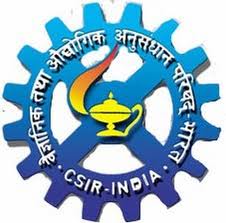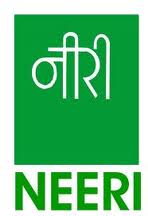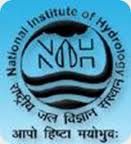Events
Training programme on urban rainwater harvesting, CSE, March 27-29, 2012, New Delhi
Posted on 20 Feb, 2012 10:52 PMOrganizer: Centre for Science and Environment (CSE)
Venue: Anil Agarwal Green College
Centre for Science and Environment
38, Tughlakabad Institutional Area,
New Delhi- 62

Description:
Training Programme on Urban Rainwater Harvesting a three-day workshop on how to harvest rain in urban centres of India has been announced by CSE between March 27-29,2012.
The programme allows you to gain knowledge, acquire holistic perspectives and get hands-on practice in planning and designing urban water harvesting systems. It will help you to solve real-life water problems of today and give you a unique chance to meet and interact with experts and professionals in the field of rainwater harvesting. Fellowships Available for Nepal, Sri Lanka, Pakistan, Bangladesh, Bhutan and Maldives.
Short term training on Social Impact Assessment, CSE, March 26-28, 2012, New Delhi
Posted on 20 Feb, 2012 10:38 PMOrganizer: Centre for Science and Environment (CSE)
Venue: Centre for Science and Environment (CSE),
41, Tughlakabad Institutional Area,
New Delhi- 62

Description:
Social Impact Assessment (SIA) is an important tool to inform decision makers, regulators and stakeholders, about the possible social and economic impact of a proposed project. To be effective, it requires the active involvement of all concerned stakeholders. Centre for Science and Environment recognises this need and has developed hands-on three-day training programme aimed at giving practical exposure to participants on SIA with specific reference to deve lopment projects, such as infrastructure, mining and other industrial projects.
Managing Information in the digital age, CSE, March 20-23, 2012, New Delhi
Posted on 20 Feb, 2012 10:13 PMOrganizer: Centre for Science and Environment (CSE)
Venue: Centre for Science and Environment (CSE),
41, Tughlakabad Institutional Area,
New Delhi- 62

Description:
Managing information, in the internet era with explosive information availability demands special skills and calls for investments in strengthening the information infrastructure and skills of an organisation. This specially designed course will teach participants on how to manage all aspects and types of information, at an institutional level and develop a virtual resource centre using open source tools and technologies.
Certificate course on the Agenda for Survival, CSE, AAGC, June 1- 30, 2012, New Delhi
Posted on 20 Feb, 2012 09:50 AMOrganizer: Centre for Science & Environment (CSE),
Anil Agarwal Green College (AAGC)
Venue: Anil Agarwal Green College
38, Tughlakabad Institutional Area
New Delhi–110062

Description:
This interdisciplinary month-long summer certificate course allows Indian participants to understand and critically evaluate issues that lie at the interface of environment & development; poverty; democracy, equity & justice.
International Conference on RDEIA- IACM 2012, CSIR, NEERI, March 28-30, 2012, Nagpur
Posted on 20 Feb, 2012 08:50 AMOrganizer: Council of Scientific & Industrial Research (CSIR),
National Environmental Engineering Research Institute (NEERI)
Venue: National Environmental Engineering Research Institute,
Nehru Marg,
Nagpur 440 020


Description:
International Conference on Recent Developments in Environmental Impact Assessment (EIA) & Integrated Approach for Carbon Management – Solutions, Technology Developments and Pollution Abatement (RDEIA-IACM 2012) will bring together the Indian and International R&D professionals and workers in the field of Environmental Impact Assessment, Environmental Science and Engineering, Green Chemistry and Green Technologies related to recent advances in Carbon Chemistry and to discuss new and exciting achievements in this field.
Training in EPANET, The Community Engineers
Posted on 18 Feb, 2012 09:31 AMOrganizer: The Community Engineers (TCE)

Description:
Trainees will be provided with the EPANET 2.0 software, Handouts and EPANET Manual. TCE has carried out several training in Water Supply Distribution Modelling using EPANET across India.
Global perspectives on water resources and environment (GloWaRE– 2012), March 22-23, 2012, Annamalai University, Annamalainagar, Tamil Nadu
Posted on 13 Feb, 2012 09:06 AM
Organizer: Department of Civil Engineering, Annamalai University, Annamalainagar
Venue: Department of Civil, Engineering, Annamalai University
Description:
Water is a vital natural resource essential for life and a precious national asset. It is a scarce resource which has to be planned, developed, conserved and managed on an integrated and environmentally sound basis; keeping in view the socio-economic aspects and needs of mankind. It is one of the most challenging tasks to ensure adequate water and food to our present and future generations. The availability of water in our country is highly variable both in space and time. Climate change, failure of monsoons, population explosion, urbanization, rising demands and anthropogenic factors lead to significant water stress. Agriculture is the mainstay of Indian economy and an assured irrigation water supply is of utmost importance for food security. Hence water resources are to be managed judiciously to guarantee adequate supplies of dependable quantity and quality, which is of major concern today.
Living rivers, dying rivers: Rivers in the Western Ghats
Posted on 10 Feb, 2012 04:12 PMRiver stories from Maharashtra: Many morals to learn
Parineeta Dandekar’s presentation began with an account of some statistics related to Maharashtra, the third largest state in India. Regarding the state of water resources in Maharashtra, she noted that of the five river basin systems, 55 percent of the dependable yield is available in the four river basins (Krishna, Godavari, Tapi and Narmada) east of the Western Ghats. These four river basins comprise 92 percent of the cultivable land and more than 60 percent of the population in rural areas. 45 percent of the state's water resources are from west flowing rivers which are mainly monsoon specific rivers emanating from the Western Ghats and draining into the Arabian Sea.
With 1821 large dams and more in the offing, Maharashtra has the maximum dams in the country (35.7%). However, the proportion of gross irrigated area vis a vis the gross cropped area at 17.8 percent is much lower than the national average of 44.6 percent. The contradictions from the state, which is home to the highest number of dams, were discussed. In nearly 70 percent of the state’s villages (around 27,600 villages), water is either not available within 500 metres distance, or within 15 metres below ground level or when available is not potable (World Bank, Promoting Agricultural Growth in Maharashtra, Volume 1, 2003).
Dandekar discussed the World Bank funded Maharashtra Water Sector Improvement Project (MWSIP) initiated in 2005 whose main components were establishment, operationalisation and capacity building of Maharashtra Water Resources Regulatory Authority (MWRRA); establishment of river basin agencies in Maharashtra; and restructuring and capacity building of the Water Resources Department. The MWRRA Act (2005) has been amended, taking out the clause for equitable water distribution, and granting the Cabinet the rights to have the last say about water entitlements. This has led to a diversion of water for irrigation from the vulnerable, suicide-prone Vidarbha region to thermal power plants. According to Prayas, “entitlements of more than 1500 MCM have been changed from agriculture to industries and cities”.

National symposium on "Water Resources Management in Changing Environment -2012", IAH, February 8-9, 2012, Roorkee
Posted on 07 Feb, 2012 02:03 PMOrganizer: Indian Association of Hydrologists (IAH)
Venue: National Institute of Hydrology (NIH), Roorkee

Description:
Water resources management requires a holistic and integrated view that considers the surface and groundwater together and also the direct human / indirect human needs. The sustainable management of water resources should base on an integrated approach linking development and protection of the natural environment, on the participation of all actors and concerned people and on the recognition of the economic and social value of water. We must promote the integration of all aspects of planning, management and protection of water resources by developing plans which aim to satisfy basic needs and to promote equitable and effective distribution of water resources, ecosystem protection and maintenance of the water cycle. Climate change, land use change and the hydrological variability of water's distribution and occurrence are natural driving forces that, when combined with the pressures from economic growth and major population change, make the water resources management a challenge. Water management plans should consider the best existing practices and the most advanced scientific breakthroughs.
"Realization of the right to sanitation in India – Challenges and ways", Workshop to be organised by Environmental Law Research Society, July 27-28, 2012, New Delhi
Posted on 07 Feb, 2012 12:38 PMOrganizer: Environmental Law Research Society (ELRS)
Venue: Environmental Law Research Society,
C-48, Third Floor,
Old Double Storey,
Lajpat Nagar – IV,
New Delhi – 110 024

Description:
ELRS is organizing a workshop in New Delhi, on 27 and 28 July 2012, to consider issues relating to the realization of the right to sanitation in India, and invites submission of abstracts.